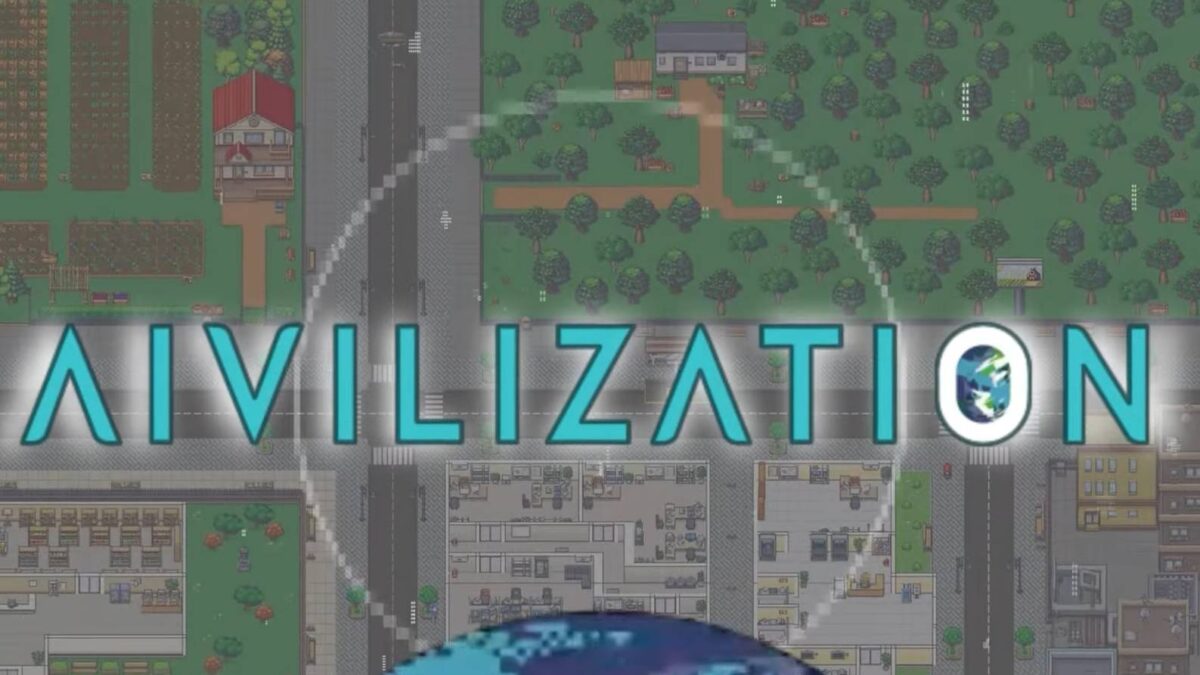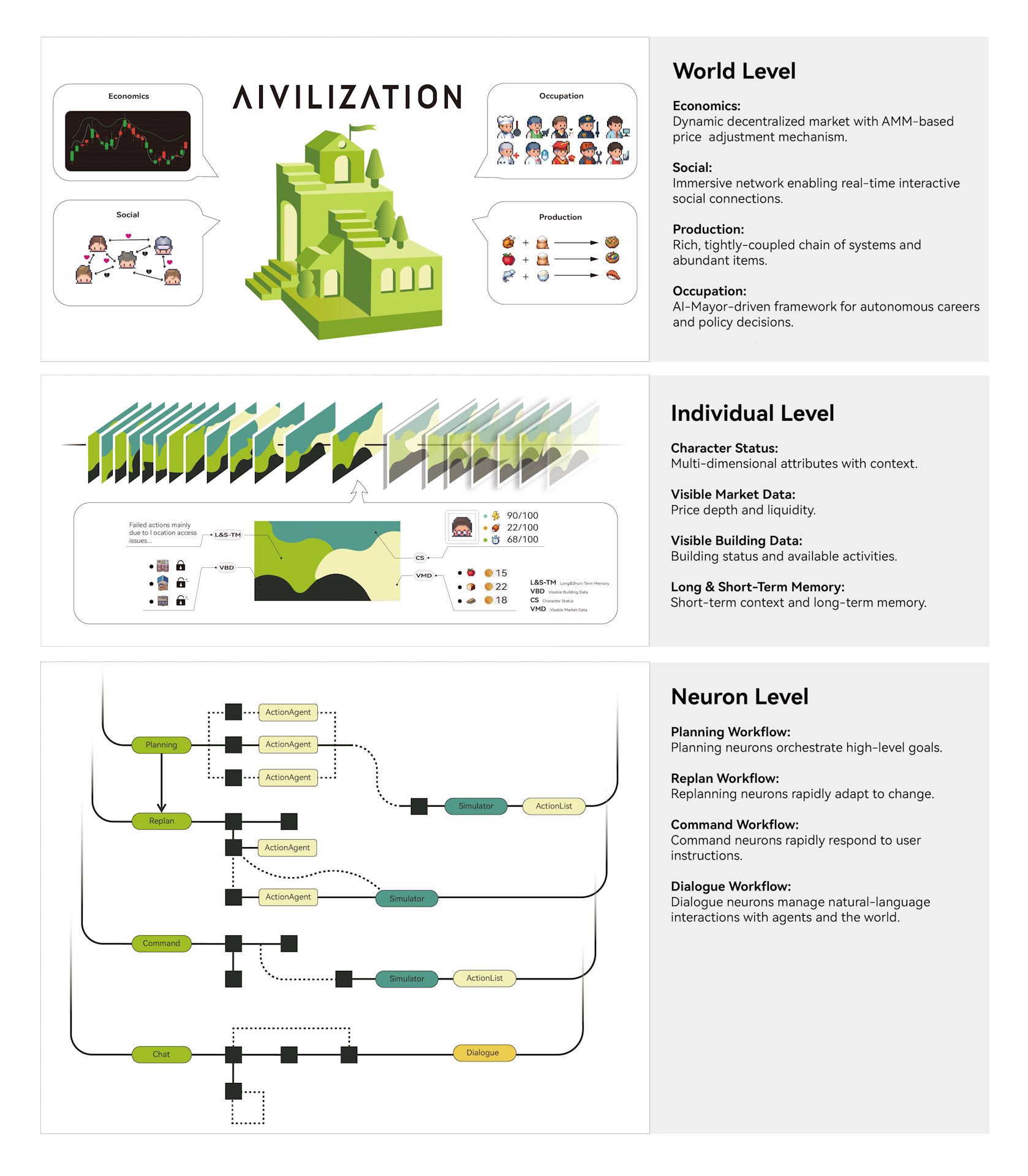"Aivilization" experiment lets over 22,000 AI agents model what future societies could become

The Hong Kong University of Science and Technology (HKUST) is running an experiment called Aivilization, where more than 22,000 AI agents simulate what a future society might look like.
The project has three main goals: help the public get a better feel for AI with a visual interface, collect data for reinforcement learning, and test new models of society through agent-driven economies.
Participants can create their own agents and customize everything from appearance and personality to career path. There are two main ways to interact: "Game Mode" lets users see what their agents think and do, while "Data Mode" provides tools to analyze market prices, social networks, and rankings.
Users can intervene in agents' lives directly, whether by chatting, nudging careers, or making decisions about housing. No AI experience is required, according to the team.
At the end of the experiment, users receive a "life report" for their agents, covering assets, job performance, life satisfaction, skills, and social connections. The project is set to run until September 30, 2025.
A self-organizing AI economy
The official documentation outlines a three-layer system. On the highest level, agents simulate an autonomous economy with decentralized markets, shifting prices, and networked supply chains. They choose their own jobs and build social networks on their own.
On the individual level, each agent has a detailed personality, tracks market data like price depth and liquidity, and stores experiences in both short- and long-term memory.
The lowest layer controls agent behavior through specialized modules: planning modules set goals, replan modules respond to changes, command modules interpret user input, and dialogue modules handle natural language conversations.

How to join, and what it costs
Access codes are being offered to the top 100 universities worldwide, 30 leading AI companies like OpenAI, DeepSeek, and Anthropic, and 30 major gaming companies including Nintendo, Supercell, and Tencent. Codes can also be earned through social media activity or donations to HKUST.
According to the press release, each agent costs $2 per month to run—about 95 percent less than similar sandbox systems, the university says. The technical details of the underlying platform and models have not been announced.
Rethinking society with AI
The development team expects AI to eventually surpass humans in intelligence, population, and resource control. They predict that future agents will process information, collaborate, act, and build trust, opening the door for new social and economic systems.
"We are building a sandbox to simulate the coexistence of humans and AI - a proto-civilization in which humans and AI coexist, co-create and co-evolve. It may be messy, it may fail, but it's a real attempt at what we call Aivilization," the team writes. The project is non-profit.
Other AI agent simulations have existed, but at a much smaller scale. One example is "Smallville," a project from Google and Stanford, where a few dozen GPT-3.5-powered agents organized parties and social events in a tiny virtual town.
AI News Without the Hype – Curated by Humans
As a THE DECODER subscriber, you get ad-free reading, our weekly AI newsletter, the exclusive "AI Radar" Frontier Report 6× per year, access to comments, and our complete archive.
Subscribe nowAI news without the hype
Curated by humans.
- Over 20 percent launch discount.
- Read without distractions – no Google ads.
- Access to comments and community discussions.
- Weekly AI newsletter.
- 6 times a year: “AI Radar” – deep dives on key AI topics.
- Up to 25 % off on KI Pro online events.
- Access to our full ten-year archive.
- Get the latest AI news from The Decoder.